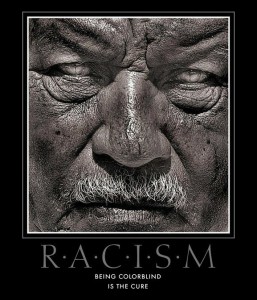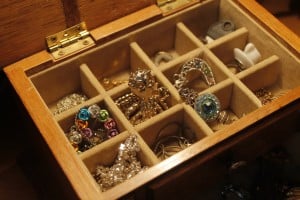I had the chance to listen to a, rather old, Reith Lecture on the BBC about the genetics of race. Normally, I tend to shy away from listening to these kinds of subjects since a) I live within the sphere of being “other” and b) the sphere of race happens to be the one of the most often ignored and or maligned for making itself known; never mind the fact that many Americans have to walk the fine line of having two “selves”, the outer self for the consumption of a conspicuously white-privilege based culture, and the true self that is free only around those one can trust.
To that, the first time my husband told me he “Doesn’t see color.” I almost dug my nails into the fleshy part of his hand in an attempt to keep from calling him a plethora of names, most of them ending with “ignorant asshole” followed by “of course you don’t.”
The truth is, the joy of being colorblind in our “post racial”, liberal, religious community is one only shared by the whites who so proudly bandy the term about as a way of stopping the, uncomfortable, conversation about race. Many cannot afford to be colorblind and are all too aware that our actions, words, facial expressions, and even hair styles are interpreted based on preconceived notions of who we are, based on what we are.
These notions carry over into our personal lives, effecting friendships, work place politics, and even whether the police will search for a dead body…or not. Not ‘seeing color’ is not seeing my reality and, instead, forcing millions of people of color one comes into contact with to reaffirm the beliefs of the ‘colorblind’ individual. It’s really no surprise when some of those touting how colorblind they are, are often some of the first to get venomous if a person, especially a black person, wishes to point out experiences with racism or, even worse, point out an instance where the supposed ally has been racist.
Since women, as a whole, tend to make up a majority of those engaging in these dialogues, they stand as some of the closest allies in unpacking the invisible knapsack of living as a woman, within a minority religion, in America. They can, also, stand as our worst enemies in refusing to acknowledge the black female narrative on its own merits.
This means not having the conversation derailed by well meaning white women who attempt to steer the conversation into a realm in which their beliefs, personal narratives, and concerns are the center of conversation. While there are various issues facing all women respectively, women of color, and black women in particular (since that’s all I can speak of) face a set of unique challenges. Harsher? I can’t say. Different? Yes.
Furthermore, while there are plenty of spaces available for white pagan women to speak and be heard protected by the bonds of ‘pagan sisterhood’ and the culture of ‘nice’, Daughters of Eve, so far, is the only safe space on the pagan web, I’ve found, for a black pagan woman to speak without fear of being censored, slandered, or told to ‘tone it down’ so as to not come across as militant or angry to those who see their willingness to share a space at all as some kind of gift or undeserved hand out.
This open space can become a ground for the peeling back of insecurities, fears, and apprehensions. A place to have honest, and open, dialogue. I don’t expect this to happen; not in my lifetime, nor in that of my nieces and nephews. In a subculture dead set on shallow philosophical agreement, actively courting disagreement to get to some form of compromise is a pipe dream at best.
Lately, the issue of what the pagan community actually is has been at the forefront of some conversations. Some see it as purely a community of individuals under a religious umbrella with little to bind us together save the use of said label. Others see it as a politically motivated cadre of environmentalists and privileged yuppies basking in soft-spoken, shallow, revolution. But I can say one thing for sure; the Pagan community is, in fact, color blind and I don’t mean that in a good way.
















